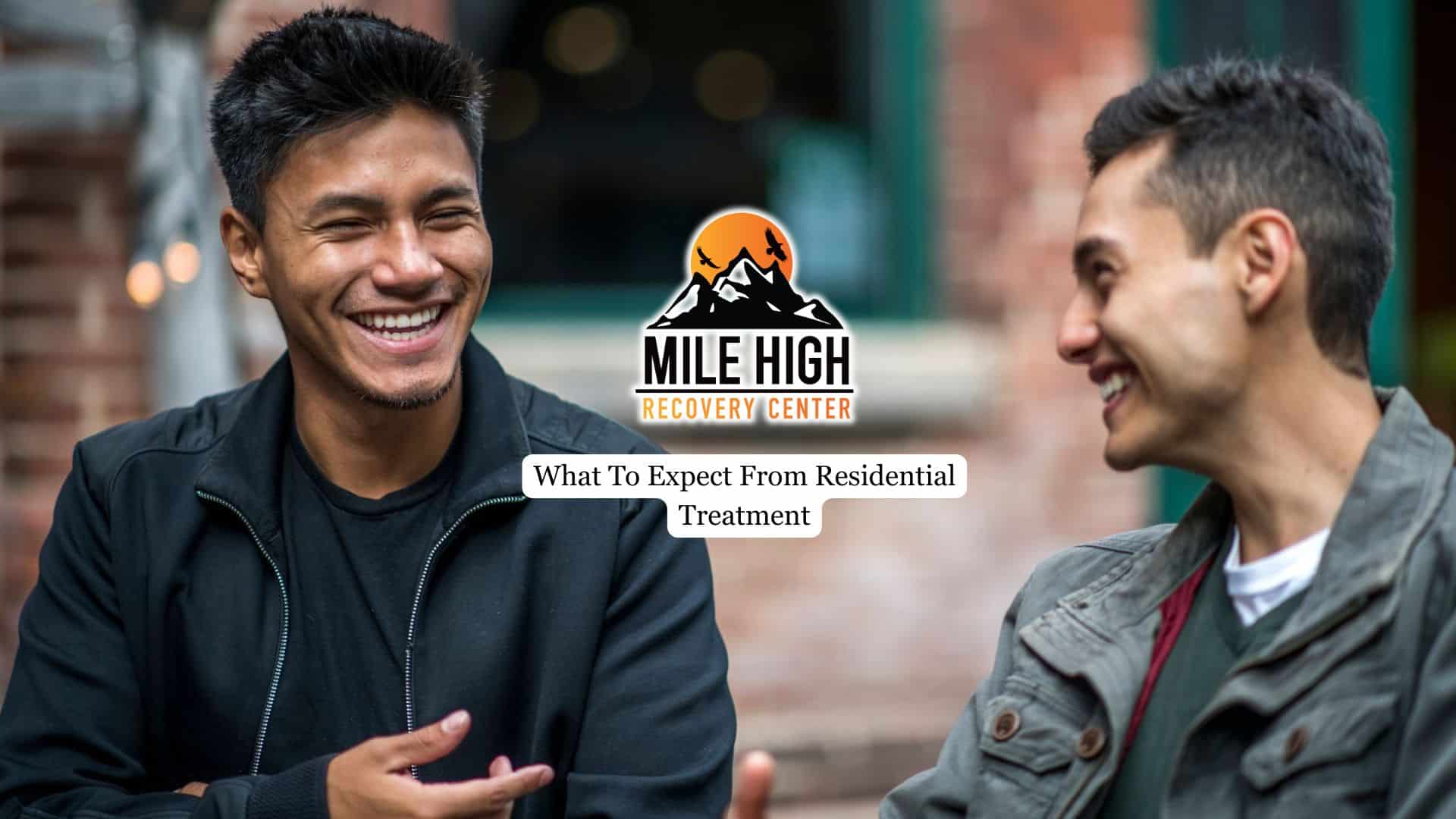Underscoring the Need for Recovery Resources and Support
As of 2016, an estimated 0.6 million individuals in the United States had heroin use disorder.1 In 2021, an estimated 46.3 million people over the age of 12 in the United States experienced any form of substance use disorder (SUD). Unfortunately, 94 percent of these individuals received no treatment.2
At Mile High Recovery Center (MHRC), we’re committed to challenging these statistics.
Our mission is to provide comprehensive addiction and mental health treatment. Our knowledgeable MHRC team offers compassionate care and personalized support to individuals seeking to overcome addiction and reclaim their lives.

We’re Committed to Your Recovery
Understanding Heroin Addiction
The Multifaceted Nature Of Heroin Addiction
Comprehensive Assessment and Diagnosis In Heroin Addiction Recovery
- Checking for signs of withdrawal
- Identifying and treating any infections
- Recognizing other health issues related to substance abuse.
Importance of Thorough Assessment In Heroin Addiction Recovery
- Setting realistic goals for heroin addiction recovery
- Choosing appropriate therapies
- Providing the necessary support throughout the treatment process.
Medication-Assisted Treatment (MAT)
Medication-assisted treatment is an effective approach for heroin addiction recovery. At Mile High Recovery, MAT options include opioid replacement therapies and medications. These are designed to manage withdrawal symptoms during heroin addiction recovery.
Behavioral Therapies
Types of Behavioral Therapies Used In Heroin Addiction Recovery
Cognitive-Behavioral Therapy
CBT focuses on identifying and changing negative thought patterns and behaviors associated with addiction. It helps individuals recognize triggers and develop coping strategies. Individuals will also be able to build healthier habits to manage cravings and prevent relapse.
Dialectical Behavior Therapy
DBT is a form of CBT that emphasizes emotional regulation and interpersonal effectiveness. It helps individuals:
- Manage intense emotions
- Improve relationships
- Develop mindfulness skills to cope with stress and cravings during heroin addiction recovery.
Holistic Approaches
The Physical, Emotional, and Spiritual Dimensions of Heroin Addiction Recovery
Holistic Therapies
- Mindfulness
- Art therapy
- Spiritual exploration.
Types of Holistic Approaches
There are several different types of holistic approaches offered at MHRC, ranging from equine therapy to yoga. These can be an essential part of heroin addiction recovery.
These include:
Mindfulness and Meditation
- Stress
- Cravings
- Negative emotions.
By incorporating mindfulness and meditation into daily routines, individuals can enhance their well-being. They will also develop the skills and knowledge needed to reduce the risk of relapse.
Yoga and Body-Based Therapies
- Release tension
- Improve body awareness
- Cultivate a sense of inner peace.
Art and Expressive Therapies
- Tap into their inner resources
- Gain insight into their experiences
- Develop new coping strategies.
Dual Diagnosis Treatment
Dual diagnosis refers to experiencing both substance use disorders and mental health conditions such as depression, anxiety, or trauma simultaneously, which is common among those with addiction.
At Mile High Recovery Center, we understand that this overlap of substance use disorder and mental health challenges can complicate treatment and recovery. Integrated care is crucial in heroin addiction recovery, especially when dual diagnoses are involved.
Our Approach to Dual Diagnosis Treatment in Heroin Addiction Recovery
Our multidisciplinary team collaborates closely to provide holistic care that supports sobriety and mental wellness. By addressing dual diagnosis, Mile High Recovery Center helps individuals reclaim their lives, fostering lasting healing and stability.
Relapse Prevention and Aftercare
Relapse prevention is critical in the journey of heroin addiction recovery. Despite completing treatment, individuals often encounter triggers and cravings that can jeopardize their progress.
It’s essential to develop effective strategies to recognize and manage these challenges to maintain sobriety over the long term.3
Relapse Prevention Education
Aftercare Planning and Ongoing Support
- Relapse prevention groups: These groups help you learn strategies to manage triggers and cravings, supporting your journey to stay drug-free.
- Therapy sessions: You’ll continue meeting with a therapist for ongoing support and guidance as you navigate life after treatment.
- Support networks: Connect with others who understand your experiences through peer support groups and alumni programs, offering ongoing encouragement and solidarity.
Family and Social Support
Family Therapy and Education
We offer family therapy sessions and educational workshops to support individuals and their loved ones in understanding:
- Communication
- Healthy relationship dynamics.

Embracing Hope and Healing in Heroin Addiction Recovery
- Medication-assisted treatment
- Behavioral therapies
- Holistic approaches.
Seeking Support and Exploring Treatment Options
If you or someone you love is struggling with heroin addiction, we encourage you to seek support available at Mile High Recovery Center. Our compassionate team is here to guide you through every step of your recovery journey.
At Mile High, we offer a safe and supportive environment where you can heal and grow. Together, we can embrace hope and healing. Our goal is to empower you to reclaim your life from addiction and move towards a brighter future.
Resources
- https://www.samhsa.gov/data/sites/default/files/NSDUH-FFR1-2016/NSDUH-FFR1-2016.htm#:~:text=Substance%20Use%20Disorders,-In%202016%2C%20approximately&text=An%20estimated%202.1%20million%20people,with%20a%20heroin%20use%20disorder
- https://www.hhs.gov/about/news/2023/01/04/samhsa-announces-national-survey-drug-use-health-results-detailing-mental-illness-substance-use-levels-2021.html
- https://www.ncbi.nlm.nih.gov/pmc/articles/PMC7813220/
- https://www.ncbi.nlm.nih.gov/pmc/articles/PMC3725219/








